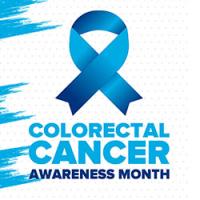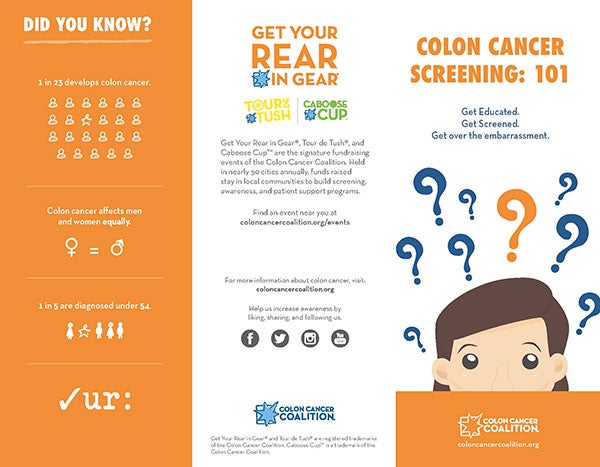
What is Colorectal Cancer?
Colorectal cancer is cancer that starts in the colon or rectum when cells in the body begin to grow out of control. Most colorectal cancers begin as a growth, called a polyp, on the inner lining of the colon or rectum. Polyps and cancer don’t always cause symptoms. It is important to note that not all polyps are cancerous. However, when cancer grows in a polyp, it can grow into the wall of the colon or rectum over time and if left undetected, can reach blood vessels and lymph nodes. Regular screening is crucial to prevent cancer cells from progressing.
Colorectal Cancer Screening
Regular colorectal cancer screenings are recommended for adults age 50 and older since risk increases with age. More than 90% of colorectal cancers occur in people over the age of 50. Additionally, not all precancerous polyps or cancer cells present symptoms, and can be detected with screening. However, if there is a history of colorectal cancer in your family, your doctor may recommend screening earlier.
“As a primary care physician, it’s vital that I talk with my patients about the importance of screening for colon cancer and educate them on the screening guidelines,” Ilia Coka, MD, Greater Roslindale Medical and Dental Center Family Medicine.
Colorectal Cancer Risk Factors
There are risk factors out of your control, such as certain genetic mutations or family history. If you have a family history of colon cancer, it is best to discuss with your doctor. Other risk factors include age, personal history of inflammatory bowel diseases such as Chron’s or ulcerative colitis, or other diseases such as type 2 diabetes.

Ethnicity plays a role in risk as well. African Americans have a higher incidence and mortality rate of colorectal cancer in the United States, and the reason is not fully understood. Between 2009-2013, incidence was 20% higher than for those of other ethnicities. Jewish people of Eastern European descent have a higher risk worldwide.
Colorectal Cancer Screening
There are several screening test options and your doctor can help you decide which is right for you. Colonoscopies and flexible sigmoidoscopies are most common.
“Colon cancer can be preventable, and screening can find precancerous polyps (abnormal growths in the colon or rectum). If they are found, they can be removed before they turn into cancer. Screening is crucial and essential because when found early, colorectal cancer is highly treatable.” Chekesha Carter, RN, BSN, Greater Roslindale Medical and Dental Center Nurse Manager.
Lower Your Risk
As the saying goes, an ounce of prevention is worth a pound of cure. By living a healthy life each day, and following these recommendations from the American Cancer Society, you can lower your risks of developing colorectal cancer.
- Diet: A diet high in vegetables, fruits, fiber, and whole grains, and lower in red and processed meats have been linked with lower colorectal cancer risk.
- Exercise: Regular moderate exercise helps lower your risk, and studies have shown that regular rigorous exercise can possibly lower your risk even more.
- Weight: Excess belly fat has been shown to increase your risk, as does being overweight. With proper diet and exercise, maintaining a healthy weight can help lower your risk.
- Don’t Smoke: Long term smoking is linked to increased risk of colorectal cancer, as well as other cancers. If you smoke, it’s time to stop. And if you don’t, don’t start.
- Limit alcohol consumption: Increased alcohol consumption has been linked to higher risk, especially in men.
If you are diagnosed with colorectal cancer, Boston Medical Center offers many treatment options. See the inspirational story and video of a patient who has been treated and is in remission for over eight years.
Colorectal cancer can be detected with regular screenings. It is important to schedule routine check-ups with your doctor, live a healthy lifestyle and do what you can to lower your risk factors.
